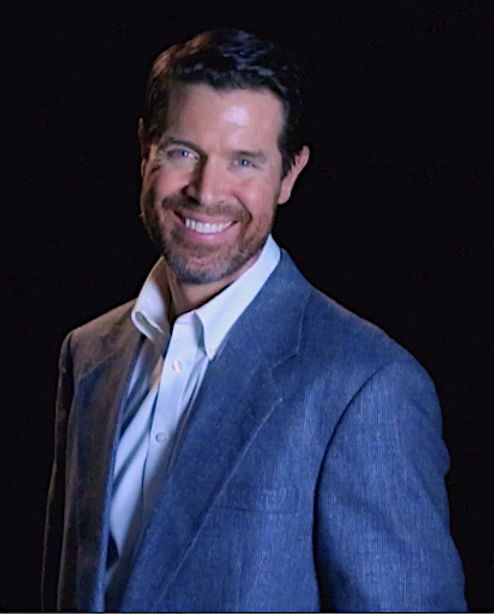The Need to Rewrite Dangerous Stories
Storytelling is one of humanity's most profound tools. It connects us, helps us make sense of our lives, and inspires change. But when it comes to Parkinson’s disease (PD), the stories we tell—and the ones we avoid—can be dangerous.
We need to rewrite the way we talk about PD, not just for ourselves, but for the people who need to understand the stakes: our families, our communities, and the policymakers who decide funding priorities. This is not just about sharing stories; it’s about rebranding PD as the crisis it is while holding space for hope and connection.
The Danger of "I'm Fine" and surface level stories
Many people living with PD fall into the trap of saying, “I’m fine,” or presenting only the “on” moments—the times when the medication works, the symptoms are less visible, and they can function almost like their old selves. This isn’t just an act of self-preservation; it’s also for the comfort of others.
Most people don’t want to confront the reality of a degenerative disease - which is completely understandable! Denial and avoidance are powerful coping mechanisms. But here’s the catch: presenting a sanitized version of our reality leads to dangerous misunderstandings.
If we only share the highlight reel, others think, It’s not that bad. And if it’s not that bad, why should anyone worry? Why should politicians prioritize funding? Why should researchers race to find a cure? Why should communities rally to support us?
Surface level stories are equally problematic. Stop me when you’ve heard this one: I got diagnosed with PD. It was devastating. I started exercising and now I’m managing. It’s not a bad story - it’s just neither whole nor engaging. It leads to “so what?” The PD community has a need for more funding, research and understanding. That won’t happen unless we can capture hearts and minds. Surface level stories do neither.
This is why the “I’m fine” and surface-level stories are dangerous. They protect others’ comfort at the expense of our truth—and ultimately, our progress.
Why Stories Need High Stakes and Clearly Defined Obstacles
What makes a story powerful? It’s not perfection, it’s struggle. It’s the up and down, the wavelength of success and failure, triumph and defeat. Stories resonate because they reflect the truths of life: messy, unpredictable, and full of high stakes situations and obstacles.
Imagine watching Jaws and realizing the shark (talk about an obstacle!) never actually attacks anyone. Sure, it might pop its fin up once in a while, but no one is ever in real danger. Would you stick around to watch? Probably not. Stories need stakes and something to push back against or overcome—something to lose, something to fight for, something that stretches people to their limits. This is what great stories do.
When we talk about PD, we have to embrace the high stakes rather than retell the safe, surface level story. Yes, it’s degenerative. Yes, it’s awful. Yes, it’s the fastest growing neurological disease in the world and there is currently no cure. And it’s also full of moments of resilience, innovation, and humanity. These are the stories that move people, that make them sit up and say, We need to engage and do something about this.
Rebranding PD: A Crisis Worth Embracing
The scientific community is waking up to the reality that it has been telling, at best, an incomplete story about PD. PD is not solely a movement disorder as Dr. James Parkinson wrote in his essay, The Shaking Palsy, 200 years ago. That story, however, has been passed down through medical school training for more than two centuries. Thankfully, books like Ending Parkinson’s Disease have laid out the facts: this is a pandemic. The number of people diagnosed with PD is rising at a rate consistent with the definition of a pandemic. The ripple effects—on families, caregivers, and society—are enormous. PD is NOT just an old white man’s disease. It affects everyone.
But facts alone aren’t enough. Data can inform, but stories inspire action. And right now, the story of PD isn’t doing its job. Too many people think of PD as “just a tremor” or something that only affects the elderly. They don’t see the full picture: the “off times”, freezing episodes, mental fog, isolation, fear of the future, apathy, financial and relationship strain due to relentless progression.
To rebrand PD, we need to rewrite the story of PD. Not as a minor inconvenience or a manageable condition, but as a full-blown crisis. A crisis that demands attention, funding, and action.
The Power of Vulnerable Storytelling
So how do we tell better stories? Part of the answer lies in vulnerability.
It’s scary to tell the truth, especially when it’s messy or personal. What will people think if you talk about the nights you couldn’t sleep because of tremors? Or the way your relationships have shifted because of your diagnosis? Or the moments you hide and feel like giving up?
But here’s the thing: vulnerability connects us. When we see someone else’s truth, we feel less alone in our own struggles. And when we see someone rise from their darkest moments, we feel inspired to do the same.
This is where storytelling becomes medicine. It helps us process our experiences, connect with others, and advocate for change. It’s not just about telling your story; it’s about telling a story that moves your audience. A story with stakes, with heart, with a pulse.
A Call to Action: Mythologize Your Journey
If sharing your literal truth feels too personal or too raw, there’s another, and perhaps even more powerful way: mythologize yourself.
Think of yourself as a hero on a journey. Start with your reality, but then elevate it to something universal. Maybe your hero has your same qualities and struggles but is fighting metaphorical dragons or scaling impossible mountains. This is why we use Joseph Campbell’s Hero’s Journey as a framing device in our Cinema Therapy classes.
The beauty of mythologizing is that it creates aesthetic distance while still holding onto the core truth. It allows you to share your story in a way that feels empowering and engaging, not exposing. And it taps into the universal truths of the hero’s journey: struggle, transformation, and triumph. Writing in this way can free you of your fears and, at the same time, connect you to others. When we tap into well known storytelling techniques, structure and tropes, then combine it with our unique perspective and details, the audience understands, empathizes and is primed to engage - which is what we need!
Why Your Story Matters
A common excuse for not telling your story is, “Nobody cares about my story.” Here’s a hard truth: that might be true if your story is surface-level. If it’s just about minor inconveniences, problems that resolve themselves or seem completely hopeless, your audience, understandably, might tune out.
But if your story has stakes—real, raw, relatable life-and-death stakes—people will listen. They’ll feel something. They’ll remember it. And they’ll act.
When it comes to PD, we need to stop telling surface-level stories. We need to show the full picture: the highs, the lows, the struggles, and the triumphs. This is how we change minds, inspire action, and rebrand PD as the crisis—and the opportunity for change—that it is.
Rewrite the Narrative
The need to rewrite dangerous stories isn’t just about PD. It’s about all of us, as individuals and as a society, learning to tell the truth. It’s about confronting the hard things instead of avoiding them. And it’s about using storytelling as a tool for connection, inspiration, and change.
If you’re living with PD—or know someone who is—this is your call to action. Start telling the stories that matter. The stories with stakes, with heart, with truth. The stories that make people sit up and listen. If you don’t know how, then join us in the Cinema Therapy program. As a professional, award-winning filmmaker and survivor of a brutal PhD program studying the effects of improvisation and storytelling on PD, I have decades of experience in this realm. I designed the Cinema Therapy program and founded my 501(c)3 nonprofit, Yes, And…eXercise!, to help raise the unheard voices of the PD community. In order for that to happen, for us to make these changes, you must say, yes, I want this, and I’m ready to rewrite the story of Parkinson’s disease.
Because when we rewrite the narrative, we don’t just change the way people see PD. We change the way they see us—and the way we see ourselves. And that’s the beginning of something powerful.
Upcoming Cinema Therapy Classes
The Shawshank Hero’s Journey begins on Tuesday, Jan. 14. Click here for more information.
Taking Parkinson’s disease Back to the Future begins on Monday, Jan. 27. Click here for more information.
All are welcome!

